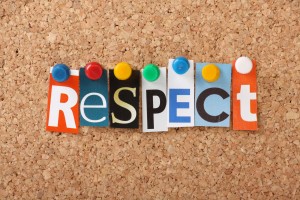In the aftermath of the Do Better Dartmouth campaign, I wrote that it was not a college’s job to protect its students. This past week, a panel of learned men debated and discussed tuition increases, and this same issue arose. They wondered aloud what, exactly, the purpose of higher education is, or more precisely, what it should be. The consensus seemed to be that the purpose of higher education should be to educate students, although the nature of this education proved more contentious. There was also a general agreement that this was not the current goal held by the majority of college trustees, presidents, and administrators. The true goal of these three parties, it seems, is financial gain. They achieve this profit in part by creating a bloated bureaucracy of administrators and superfluous student services.
I am not an economist, but I know that there has to be demand for such expansion in order for it to exist. It logically follows that students themselves, or at least a significant number of them, actually want these superfluous administrators. In order to understand why students, particularly those who struggle to pay tuition, want to increase the amount they pay, we must look at one of the principle causes of expansion: protecting students. While there are many ways in which college administrations waste money supplanting civil authorities in the protection of students, none are as heinous as the push to censor opinions and create exclusive “safe-spaces.” Delineating between groups that get safe spaces and those that do not is nothing more than blatant discrimination.
To be perfectly clear, society, especially student society, has absolutely no need for censorship, safe-spaces, and the entirety of politically correct culture. What we do need is a culture of respect. No student – no person – has a right to comfort or freedom from offense. Everyone, on the other hand, has an obligation to respect the humanity of even their worst enemies, act with civility in their most trying moments, and refrain from self-indulgent cruelty. The debate over exactly where the line of what is respectful and what is not is a far more appropriate debate to have than what is offensive.
To be fair, the desire for political correctness likely developed in reaction to individual bigots. Bigotry itself is not something we can eliminate from society: hate is a natural phenomenon, just as the desire to shield oneself from it is a natural reaction. That does not mean that either of these is justified. Nature does not justify action: natural does not equate to moral. In no way is it acceptable to spout hatred against others for any reason. I can understand why it is tempting, but resisting that urge should be seen as a virtuous. In the same vein, resisting the urge to shut out the world (or shut down others) in response to bigotry is also a virtue.
There is another problem with the way in which politically correct culture has developed. The definition of bigotry has expanded to include opinions proscribed by certain groups. Many people now see challenges to their beliefs as attacks on their core identity. I have repeatedly heard heart-felt testimony from individuals who feel threatened in their daily life at Dartmouth. I do not seek to deny that these individuals feel this way: I fully believe that when they tell me they are afraid and uncomfortable, they are telling the truth. That is their natural impulse, and I cannot fault them for letting it win out.
What I can do is urge them to reflect on giving in to that impulse. We all feel unsettled by life, regardless of who we are. Part of survival and success is processing our negative emotions in a productive way. I could share the ways in which I have struggled with my place at Dartmouth, but the fact is that this would not help others who have their own, unique difficulties and questions. Only we can control what we feel: not even the most hatful of bigots can force us to fear him. I challenge all of those who feel marginalized at Dartmouth to turn that fear and hate into compassion for others and hope. I urge those at the root of this problem, those who lack the self-control to be kind to their fellow humans, to reconsider why they act the way they do.


Be the first to comment on "Respect and Political Correctness"